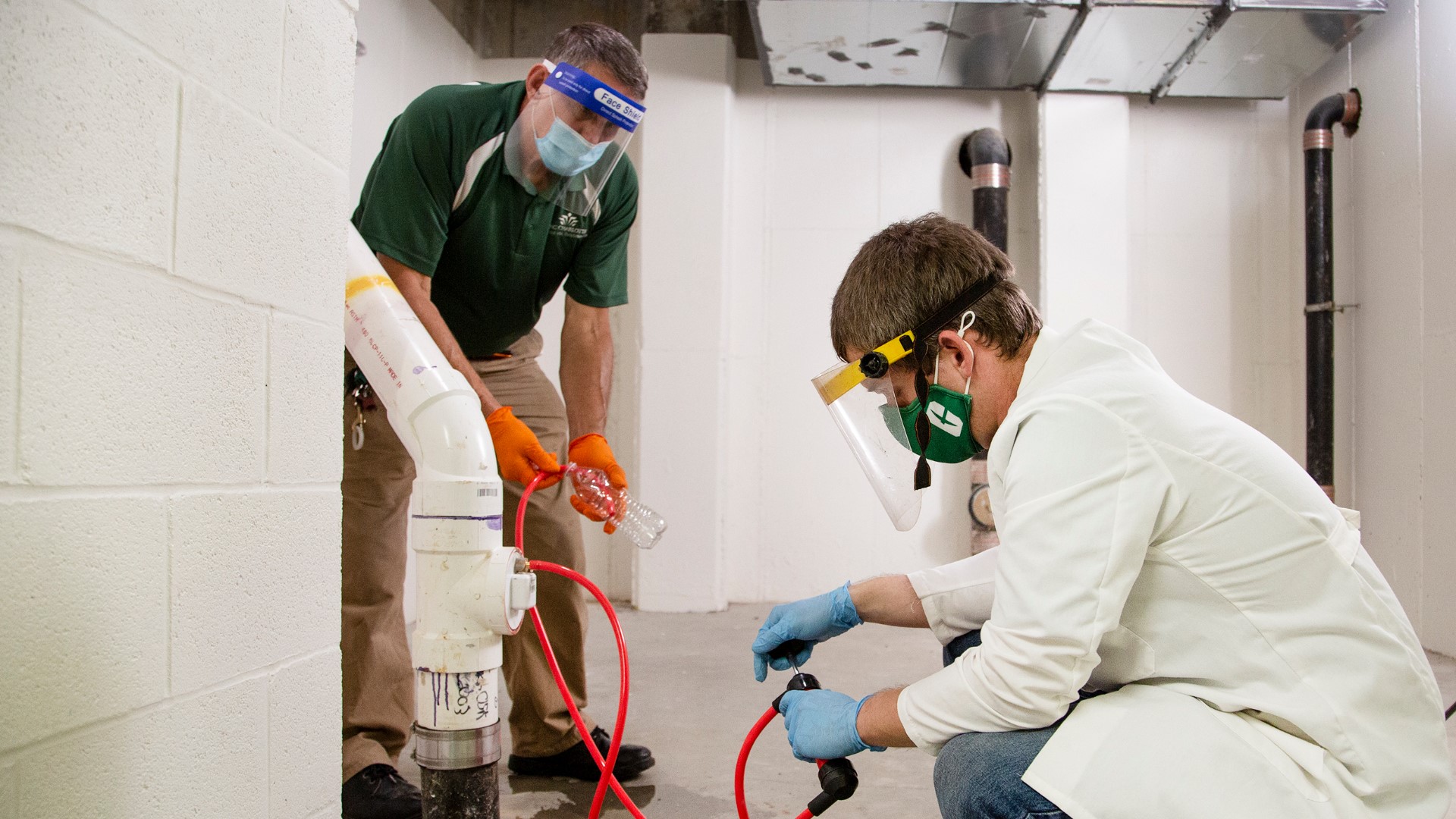CHARLOTTE, N.C. — While most people are focused on exiting the current COVID-19 pandemic, some scientists are already working ahead to curb future ones.
For some researchers, the key to that could be inside the toilet.
On its face, the concept sounds strange, and maybe even a little stomach-turning, but a wastewater monitoring network is growing across the United States, and North Carolina is a part of it.
The North Carolina Department of Health and Human Services has been surveilling COVID-19 genetic material in several sewersheds statewide for months now, including a few locations in Charlotte.
Last week, NCDHHS announced its COVID-19 surveillance data is now being included in the CDC's nationwide COVID-19 tracker and is one of 13 jurisdictions involved.
According to NCDHHS, people with COVID-19 shed viral particles in their stool. The particles are no longer infectious but can be measured in a laboratory.
Over the summer, when the state's system was first revealed, Dr. Zack Moore, a state epidemiologist, explained how it helps keep an eye on viral spread.
"Instead of going door to door and trying to swab everyone's noses in a community, you can now track the amount of virus that's in the wastewater and use that to see when activity is going up or going down," Moore said.
Moore said the tool can be useful in passively tracking viral levels, even as testing in the community fluctuates. Data on NCDHHS's dashboard shows the wastewater tracker runs quite parallel to data from traditional testing, showing surges when testing detects surges too.
UNC Charlotte is also expanding on its award-winning wastewater monitoring system, which it unveiled in August 2020 as a new tool to detect COVID-19 clusters on campus.
The university announced its new Center for Computational Intelligence to Predict Health and Environmental Risks, also called "CIPHER," which will assist research to "counter the spread of current and emerging infectious diseases" and other concerns like food safety and ecosystem health.
The school is conducting a $10.5 million expansion to physically support these research goals.
“The innovative and cross-disciplinary work of our researchers has shown our campus and the greater Charlotte region the immediate impacts a center like CIPHER has on public health,” University Chancellor Sharon L. Gaber said. “We know that further investment will lead to additional positive outcomes for our University and our community as a whole.”
Contact Vanessa Ruffes at vruffes@wcnc.com and follow her on Facebook, Twitter and Instagram.

